|
|
Last Modified on Aug 11, 2023
This is the time of year when the counties have finalized their budgets and they issue their tax bills. When these bills arrive, a lot of homeowners are left scratching their heads with questions like “Why is my tax bill arriving in August?” and “What happens if I decide to sell my house before the year is over?” To address this confusion, let’s clarify some of the peculiarities of North Carolina’s real estate tax system.
Calendar Year vs. Fiscal Year Confusion
One of the most confusing aspects of property taxes in North Carolina is the proration period. While counties run their budgets on a fiscal year, there is a statute that says unless otherwise agreed, taxes on real estate are to be prorated on a calendar year basis. According to the terms of the standard Offer to Purchase and Contract (jointly approved by the NC Association of REALTORS® and the NC Bar Association), the real property taxes are prorated on a calendar year basis as of the date of settlement. “Settlement” is defined in the contract as the proper completion and delivery to the closing attorney of all required paperwork and all funds necessary to complete the sale. The seller pays the taxes from January of the current year through the settlement date and the buyer pays the taxes from the settlement date through the end of the year.
Unexpected Tax Reevaluations
For property tax purposes, each county in North Carolina is required to revalue all real property within its borders at least once every eight years. Revaluations for North Carolina’s 100 counties are staggered so that not all counties are revaluing during the same year. Some counties elect to revalue property more frequently than the 8-year mandate — most commonly every four years. If you’ve been on social media lately, you’ve probably seen a flurry of homeowners exclaiming about their property tax reevaluations. Every county undergoes these, and while some homeowners see minor changes, others face steep increases that can be financially challenging. It’s essential to stay updated on reevaluations and act promptly if you believe there’s an error.
Early Pay Discounts and Other Quirks
Some North Carolina counties offer early pay discounts, incentivizing homeowners to settle their bills in July or August. However, this can lead to an avalanche of payments, stretching processing times. Once a tax bill is cleared, the county issues a ‘zero balance’ statement as proof of payment. However, some sellers find themselves in a quandary when they’ve paid their bills, but the county’s records haven’t been updated to reflect this. In such cases, for title policies to be issued, attorneys must confirm the taxes for the given calendar year are fully paid. In the absence of a zero balance statement, the only surefire way to confirm this is to resubmit the tax payment. Therefore, if your county doesn’t offer a significant early pay discount and you’re contemplating selling your property, it might be prudent to delay sending that tax bill until closer to the closing date.
In essence, property taxes in North Carolina, while seemingly straightforward, come with their share of peculiarities. As a homeowner, buyer, or seller, it’s crucial to be informed and proactive, ensuring you’re not caught off guard when the tax bill arrives.





